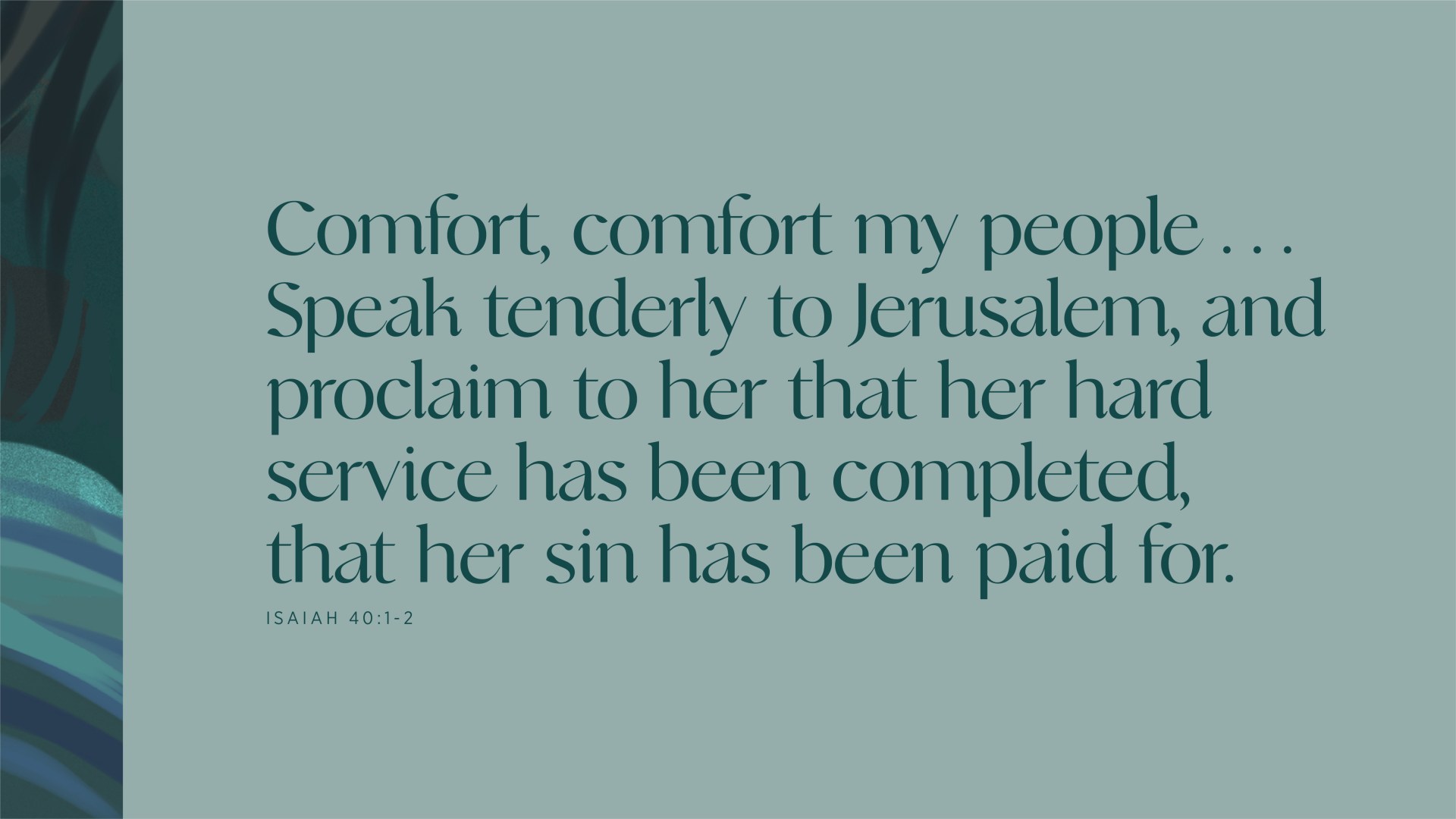Read Isaiah 40:1–5.
As we seek to gain insight on this beautiful passage, a window into its meaning for the Jewish community can help us better understand its context and significance. The Jewish people worldwide move through a weekly biblical reading cycle, similar to the Christian lectionary. The darkest weeks of the cycle fall in midsummer, leading up to Tisha B’Av, the saddest day in the Jewish calendar. It commemorates the destruction of both the first and second temple in Jerusalem. Tisha B’Av also marks numerous other tragedies throughout Jewish history. It is a day of fasting and mourning. The Book of Lamentations is read publicly and Israel’s sin before God is laid bare.
But that is not the end of the story. Immediately following Tisha B’Av, the reading cycle enters seven weeks of consolation, leading up to Rosh Hashanah, the Jewish New Year. Isaiah 40:1–26 is the designated reading for the week after Tisha B’Av, offering a reminder that judgment is not the final word. Each year, the Jewish people walk through the darkness of divine rebuke and are then reminded that God’s grace and forgiveness ultimately carry the day. They emerge from a time of ashes and despair into a new promise of God’s unyielding love.
Isaiah wrote during the expansion of the Assyrian empire and the demise of the kingdom of Israel (and eventually Judah). It was a tumultuous and tragic time, which Isaiah paints with haunting imagery. Yet Isaiah knew that this would not be Israel’s ultimate destiny. His description of restoration is equally visionary, instilling hope and perseverance in a battle-sieged people who doubted God’s presence in their midst.
Isaiah’s words also point forward to the pinnacle of divine revelation in the New Testament and the role played by John the Baptist, who’s identified as “one calling in the wilderness” (Matt. 3:3). The reference to Jerusalem’s hard service being completed and her sin being paid for (Isa. 40:2) would one day become true for all nations, as Jesus proclaimed that all people on earth are now invited into a covenantal relationship with God.
The contours of this new covenant inaugurated by Jesus’ life, death, and resurrection mirror the covenant Israel had long known. While there are repercussions for sin, God’s forgiveness and commitment to his people are renewed again and again, like waves crashing on a shore. May we press into the comfort of God’s presence and promises as we await the full revelation of his glory, even as Isaiah prophesied.
Jen Rosner is affliate assistant professor of systematic theology at Fuller Theological Seminary and the author of Finding Messiah: A Journey Into the Jewishness of the Gospel.










